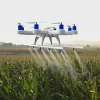The Sustainability Imperative
As organizations struggle to define a strategy that balances purpose and profit, opportunities are increasingly emerging to take the lead in sustainability initiatives. Front-line advances in areas such as net-zero emissions, AI-powered solutions for the underserved, precision agriculture, digital healthcare, and more are delivering business benefits, while simultaneously contributing to the realization of the UN’s 17 SDGs. We provide the expert thinking, debate, and guidance to help your organization reposition and transform in the era of sustainability.
Insight
This Advisor looks at two traditional approaches to corporate innovation (the stage-gate model and design thinking) and where they went wrong.
Executive Update
Sustainability 2022: Current State & Challenges to Adoption
ADL recently ran a global study exploring organizations’ current maturity in integrating sustainability into their business models. This two-part Executive Update series analyzes the results of that survey and offers insight into operationalizing sustainability. Here in Part I, we explore the current state of sustainability as well as challenges to effective business sustainability.
Businesses are being forced to respond simultaneously to climate change at the macro (external) level and the micro (internal) level. This Advisor looks at four main lenses through which businesses should view their macro and micro climate-related goals: climate science, climate governance, business stakeholders, and community stakeholders.
This Advisor presents two examples that illustrate how a new breed of business organizations is pushing beyond traditional boundaries by explicitly incorporating their understanding of nature into their strategies. These stories also demonstrate that a large-scale, system-level change toward more ecologically sustainable production systems is an evolutionary process, one that requires organizations to access as many sources of ecological knowledge as possible.
Businesses have strong reasons to focus on biodiversity. However, several fundamental issues need to be resolved to connect biodiversity to business, as we explore in this Advisor.
In a recent webinar, Cutter Expert Helen Pukszta revealed how drone technology is being adopted and applied to contribute to the achievement of environmental sustainability goals, while also creating economic value. In this Advisor, we share the Q&A session that followed.
Drawing on the results of a recent ADL survey, this two-part Advisor series considers how companies are progressing in embedding sustainability into their strategy, governance, and organization. Here in Part II, we look at two other challenges uncovered by the survey, as well as lessons learned.
Drawing on the results of a recent ADL survey, this two-part Advisor series considers how companies are progressing in embedding sustainability into their strategy, governance, and organization. Here in Part I, we look at two of the main challenges that companies face and how they can be best overcome.
























